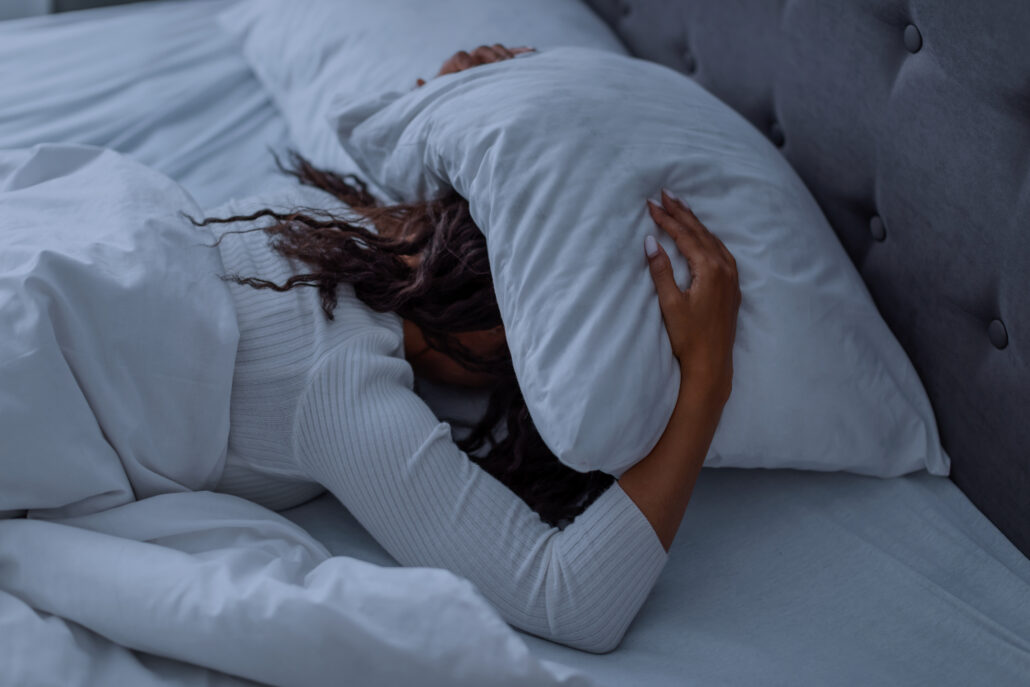Research suggests that your heart requires rest on a steady schedule, as snoozing for less than 7 to 9 hours per night puts your ticker at risk. That’s bad news for many people, as more than one-third of American adults don’t get enough sleep, according to the Centers for Disease Control.
And how bad are the consequences for the sleep-deprived? Well, a recent study published by the American Heart Association reveals that inconsistent sleep may lead to high blood pressure and coronary artery disease, among other heart ailments.
#DYK heart health & #sleep are linked? Do your heart a favor and check your sleep schedule today.
It’s not just short sleep that hinders heart health, either. Resting for more than 9 hours per night is a problem too, because it boosts your likelihood of suffering a heart attack.
Take snoozing to heart
The relationship between your chest’s thumper and your night’s slumber goes both ways — just as bad sleep hurts heart health, a finicky ticker reduces your rest. People with insomnia, the feeling of being habitually sleepless, are 17% more likely to have heart failure, according to a study in the European Heart Journal. This can be confusing, though, as insomnia could be either a symptom or a cause of the heart issues.
Additionally, a report from Harvard Medical School cautions that heart disease is sometimes the reason for restlessness, as the chest’s continuous palpitations can disrupt slumber.
There’s plenty more to know about how heart health and sleep are linked, and how they’re affecting people of different genders, races and ethnicities. Did you know:
- Sleepiness is expensive. Many of our medical issues, for the heart or in general, come from inadequate rest, so sleep disorders and deprivation cost the U.S. healthcare system $15.9 billion per year, according to the National Center on Sleep Disorders Research.
- The connection between sleep and heart health can affect your figure. On average, under-rested people snack more, and tired minds don’t keep you from grabbing that extra sip or bite of food. This leads to a negative cycle of destructive eating and poor sleep — both of which promote heart disease.
- Like insomnia, sleep apnea is a rest disorder with ties to heart failure. This condition, which leads a person to stop breathing — repeatedly, even hundreds of times during sleep — has been found to raise the risk of high blood pressure, heart attack and stroke.
- A study in the Journal of Psychiatric Research revealed that women were more likely than men to report poor sleep, frequent waking, getting up too early and having a hard time falling asleep.
- Racial and ethnic minorities are particularly struggling to get adequate rest, but that may or may not result in heart problems. In a CDC survey, sleep duration was lower among black and Hispanic respondents than among Caucasian participants. African Americans and Hispanics in the study got at least seven hours of sleep 54% of the time, whereas Caucasians reached the seven-hour mark 67% of their nights. As nearly one-half of black Americans suffer from some type of cardiovascular disease, far exceeding than the one-in-three mark among Caucasians, there may be a correlation between sleepiness and heart health.
- Despite having less sleep than Caucasians and the same sleep struggles as African Americans, on average, Hispanics are roughly 25% less likely than whites to die of heart disease.
- If your heart and sleep are harming each other, is there a way to reverse the cycle? Researchers aren’t sure. Sleep’s effect on the heart is a new area of study, so there’s a need for research that tracks participants over a long time. We hope to soon know more about how to strengthen our hearts with slumber.
Better #heart health is just a snooze away. #BSCSleepTips
Show yourself some love and, for the sake of your heart, get quality rest regularly
If your sleep or your heart ever give you trouble, consult with a medical expert. You want that heart to pound at a perfect pace for years to come.




